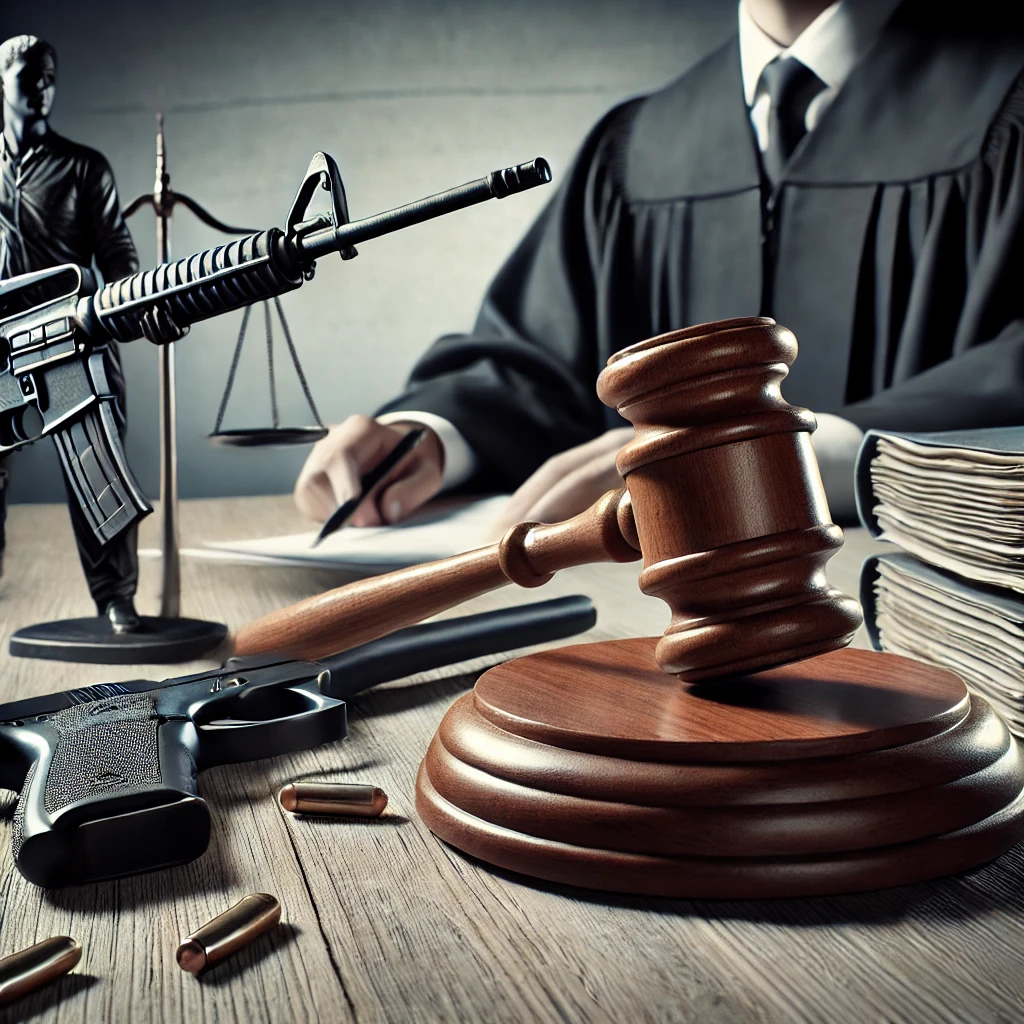Mass Shooting Survivors Sue Gun Industry
A coalition of mass shooting survivors, along with advocacy groups, has filed lawsuits against major gun manufacturers and dealers, alleging that their business practices contribute to gun violence. The lawsuits aim to hold firearm companies accountable for negligent marketing and sales practices that allegedly enable mass shootings.
The plaintiffs argue that gun makers prioritize profits over public safety by marketing high-capacity weapons to civilians and failing to implement responsible sales practices. Some lawsuits specifically target companies that produce AR-15-style rifles, weapons frequently used in mass shootings. The legal action seeks financial damages and policy changes that would require stricter oversight of gun sales.
Gun manufacturers, on the other hand, argue that they are not responsible for how their products are used by individuals. They contend that existing laws, such as the Protection of Lawful Commerce in Arms Act (PLCAA), shield them from liability in most cases and that holding them responsible would set a dangerous precedent.
Is the Case Strong? The strength of these lawsuits largely depends on whether plaintiffs can prove that gun manufacturers engaged in negligent or deceptive business practices. While federal law generally protects gun makers from liability for crimes committed with their products, some recent cases have found ways around these protections.
For example, families of the Sandy Hook shooting victims won a landmark $73 million settlement against Remington in 2022. That case set a precedent by arguing that the company’s marketing strategy targeted unstable individuals and glorified violence. The new lawsuits are expected to use similar legal strategies to challenge PLCAA protections.
However, the defense is likely to argue that the gun industry operates within the bounds of the law and that criminal acts are the responsibility of the perpetrators, not the manufacturers. The gun lobby and Second Amendment advocates will likely oppose any legal ruling that holds firearm companies liable for gun violence.
Who Should Bear Responsibility? Responsibility for addressing gun violence is shared among multiple entities. Gun manufacturers must consider the ethical implications of their marketing and sales strategies. While they argue that their products are legal and protected under the Second Amendment, critics contend that companies should take a more active role in preventing their firearms from being used in mass shootings.
Retailers and dealers also bear responsibility for ensuring that firearms do not end up in the hands of dangerous individuals. Implementing stricter background checks, red flag laws, and responsible sales policies could help mitigate the risks.
Lawmakers and courts play a key role in defining the legal landscape for gun industry accountability. While existing laws protect gun manufacturers, legal challenges like these may push for legislative changes that allow more victims to seek justice.
Finally, advocacy groups and the public influence this debate by shaping policy discussions and pushing for stronger gun control measures. Increased awareness and activism have led to some states enacting stricter firearm regulations, even as legal battles over gun rights continue nationwide.
The mass shooting survivor lawsuits against gun manufacturers represent a growing effort to hold the firearms industry accountable for its role in gun violence. These cases could reshape legal protections for gun companies and influence future regulations on firearm sales and marketing practices.
If successful, the lawsuits may pave the way for more stringent oversight of the gun industry and increased corporate responsibility. Conversely, if the courts uphold PLCAA protections, it will reinforce the challenges plaintiffs face in seeking justice against gun manufacturers.
Regardless of the outcome, this legal battle highlights the ongoing tension between gun rights and public safety. The results of these cases could shape future debates on firearm regulations and corporate accountability in the United States.


